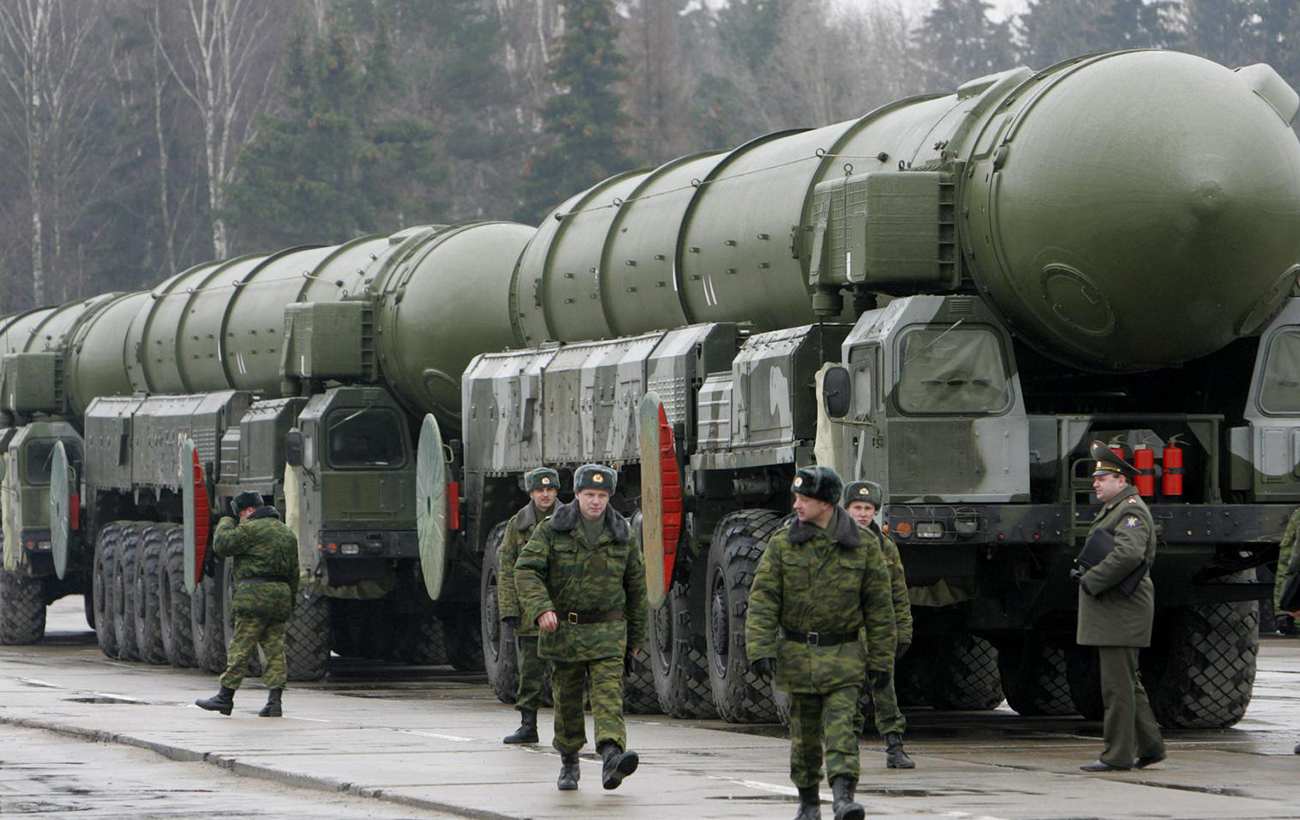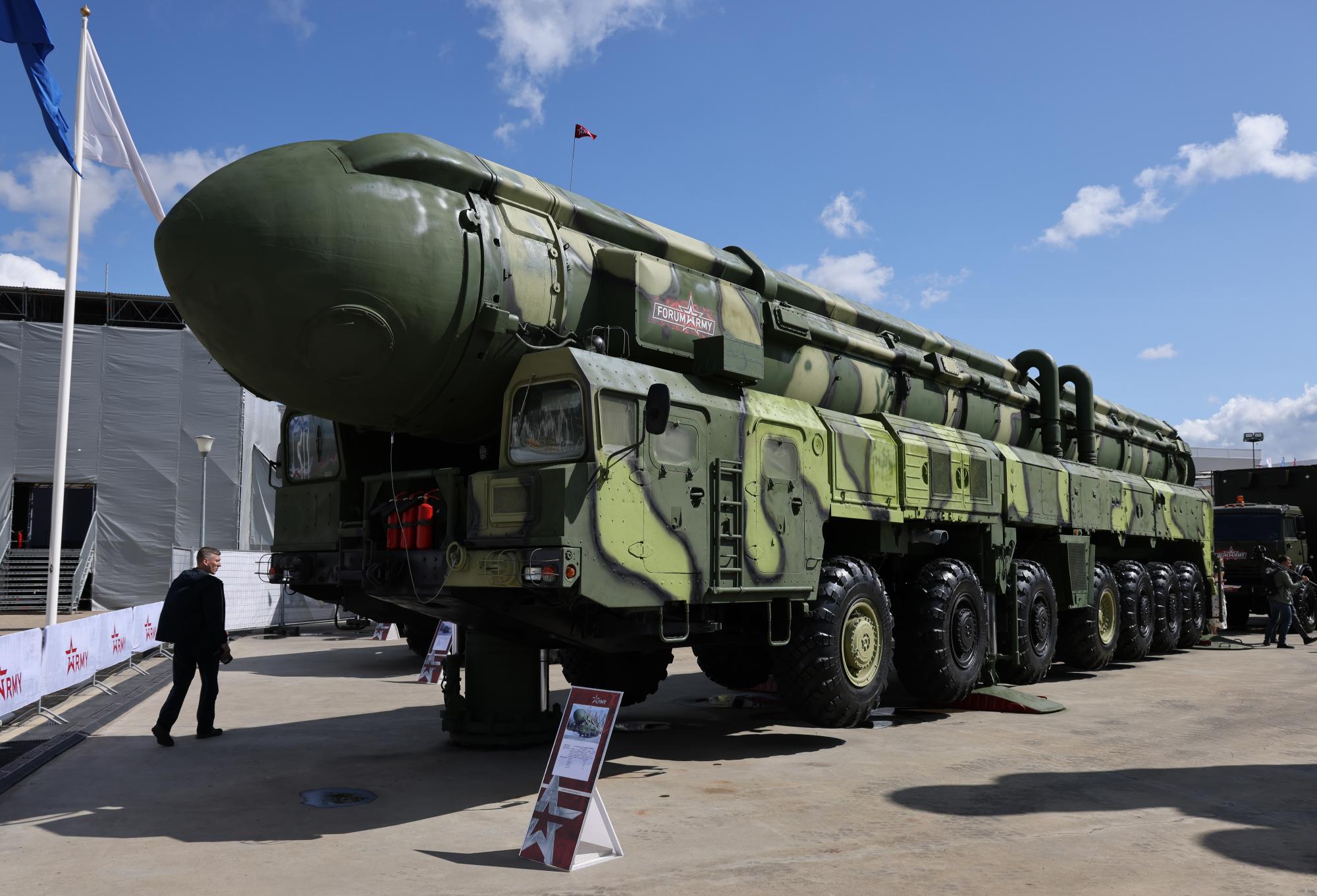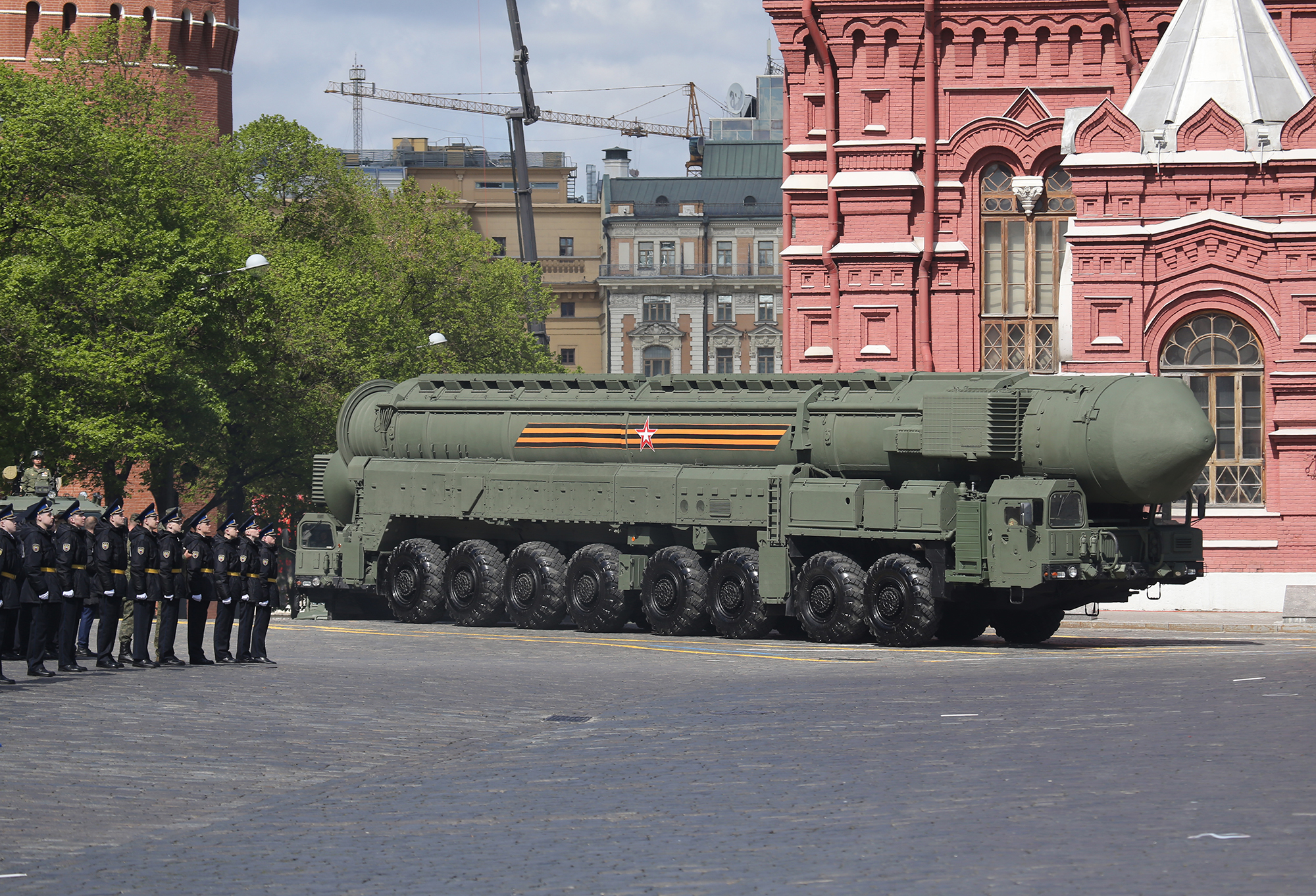Kremlin's bluff: Why Russia threatens to use nukes again and world's reaction
 Protest against the use of nuclear weapons (photo: Getty Images)
Protest against the use of nuclear weapons (photo: Getty Images)
Moscow has once again threatened a nuclear strike on Ukraine. What does Putin's move to sign an amended nuclear doctrine mean, what kind of reaction from the West should be expected, and how might this affect the course of the war - read in the material by RBC-Ukraine.
Less than a month before the thirtieth anniversary of the Budapest Memorandum, Russia announced it could use nuclear weapons against non-nuclear states, apparently referring to Ukraine. This statement was a response to Ukraine's permission to fire long-range Western missiles at Russian territory.
Vladimir Putin has once again decided to play his nuclear card - Kremlin officials announced he had signed the updated nuclear doctrine. The doctrine stipulates that Russia reserves the right to use nuclear weapons on the territory of a non-nuclear state in response to a conventional, or regular, weapon attack. Clearly, Moscow hoped to provoke panic in the West and push Washington to immediately revoke its approval for Kyiv to strike Russia with ATACMS missiles. However, it seems that today, Russia's nuclear hysteria scares nobody anymore.
Another round of nuclear threats
Russia is once again threatening Ukraine with nuclear weapons. Each time Kyiv asked the West for assistance that could impact the course of the war or help the Ukrainian Armed Forces seize the initiative on the frontlines, Moscow immediately hinted at or openly warned that nuclear weapons would be used if Ukraine received significant support.
Since the start of the full-scale war, Russia has regularly used nuclear weapons as a form of blackmail against Ukraine and the West during moments of difficulty on the battlefield. Back in May 2022, Vyacheslav Volodin, the speaker of the State Duma, spoke of a nuclear strike "in response to an attack." Around the same time, Russian Foreign Minister Sergey Lavrov also suggested the possibility of nuclear weapon use. All of this was said against the backdrop of constant threats from Russian propaganda to “wipe to radioactive ashes” everyone who helps Ukraine, and Ukraine itself.
One of the peaks of nuclear hysteria occurred in September 2022, following the successful Ukrainian counteroffensive in the Kharkiv region. Russia not only threatened to use nuclear weapons but also claimed that Kyiv was working on a so-called "dirty bomb." Meanwhile, the Kremlin is well known for accusing others of what it does. Western allies of Ukraine reacted sharply to these claims, because if Moscow reported that Kyiv had used a "dirty bomb," it would have untied Russia's hands.
At that time, the United States assessed the risk of nuclear war as a 50/50 chance. To calm Russia, Western countries used various instruments of influence, including China. Eventually, Chinese President Xi Jinping openly stated that nuclear wars must not be started. His words were interpreted as a clear signal to Russia. Since then, the intensity of nuclear threats from the Kremlin has noticeably decreased, but Putin continues to seize any opportunity to bring the nuclear card to the table.

Russia's nuclear weapon (photo: Russian media)
New nuclear blackmail by the Kremlin
Today, the Kremlin initiated a new round of nuclear blackmail, this time backing it up with decrees and signatures. Just three weeks prior, on September 25, Putin announced an expansion of Russia’s nuclear deterrence doctrine, stating that a nuclear response would follow reliable information about the launch of air and space attack systems targeting Russia, referring to aircraft, cruise missiles, and drones. After that, Russia was repeatedly attacked, at least by drones, but there was no response. When asked about this, Kremlin spokesperson Dmitry Peskov advised not to appeal to the doctrine too much.
Now, with Ukraine having the ability to strike Russian territory with Western weaponry, Putin unexpectedly signed the updated doctrine, after which the Kremlin released statements of varying degrees of threat. Notably, the Russian President signed the document less than a month before the 30th anniversary of the Budapest Memorandum. On December 5, 1994, Russia, Ukraine, the UK, and the US signed the agreement, guaranteeing Ukraine’s sovereignty and security in exchange for giving up its nuclear weapon. Thirty years later, Russia, which inherited these nuclear arsenals, is now threatening to use them against Kyiv.
Updated doctrine – What lies behind the Kremlin's threats?
Over the course of the three years of full-scale war, the West has repeatedly expressed fear of escalating the conflict. This concern has been cited by Ukraine's allies as the reason for various delays in making key decisions, holding back on weapons deliveries, and refusing to allow strikes on Russian territory. The term "escalation" was used every time Moscow hinted at the possible use of nuclear weapons.
Meanwhile, Russia has continued to openly and arrogantly violate all laws and customs of war, United Nations declarations, and other important international documents and agreements. It has used banned weapons, killed prisoners of war, attacked civilian areas, bought ammunition and equipment from situational allies, and, more recently, deployed soldiers from North Korea. Each time, Russia escalated the war and moved it to new levels, while the West hesitated. Whenever Ukraine’s partners took cautious steps to assist Kyiv in its defensive war, Russia threatened with nuclear weapons.
Today, Putin repeated this once again, threatening to strike Ukraine in response to conventional weapons. Perhaps the sheer number of these threats, none of which have come to fruition, has led to a response from the West that did not meet the Kremlin's expectations, notes military-political expert and member of the Information Resistance group, Oleksandr Kovalenko.
"His nuclear threats have long been clear to everyone, and official statements have already been made numerous times regarding Russian nuclear threats. This has become a well-worn scenario. Everyone knows the script," says Kovalenko in a comment to RBC-Ukraine.

A Russian nuclear missile (photo: Russian media)
Experts note that today’s threats from Putin resemble so-called "nuclear exhibitionism" and, in reality, are no longer frightening to many. The West understands that while Russia may be changing words in documents and engaging in bureaucratic maneuvers, a nuclear strike is unlikely. If the Russians were truly ready to launch a nuclear missile, they would have already done it, states political analyst Oleh Saakian. If this hasn't happened yet, it means Russia is not permitted to take such a step.
"The limits of what is permitted within the Russian paradigm, where the cult of strength is a key measure of their reality and actions, are the determining factor in their range of possibilities. They will do as much as they are allowed. That’s why all this nuclear posturing, shaking the nuclear warhead around, all this nuclear exhibitionism is tiresome to everyone and will not cause any reaction," says Saakian in a comment to RBC-Ukraine.
At the same time, it’s not entirely clear what exactly is meant by "Russian territory" in the Kremlin’s statements. If we follow Moscow's logic, occupied Ukrainian territories are also part of Russian territory, as stated in their constitution. However, there has been no indication of what kind of response Russia is threatening.
Additionally, according to media reports, Ukraine has already used ATACMS missiles, striking an ammunition depot in the Bryansk region. Commenting on this, Russian Foreign Minister Sergey Lavrov made a rather ambiguous statement, adding that Russia strictly adheres to the principle of preventing nuclear war. Clearly, the situation surrounding the doctrine seems more like an attempt by Putin to raise the stakes and intimidate, notes former spokesperson of the General Staff of the Ukrainian Armed Forces, Vladyslav Seleznov.
"If Peskov says that if Ukraine uses Western weapons on Russian territory, we will use nuclear weapons, the question arises – where is he bluffing? After all, for at least the past two years, the Ukrainian army has been striking, with the help of HIMARS and other weapons provided by our Western partners, on territory that Russia considers its own, as the occupied Ukrainian territories are part of Russia according to the Russian constitution. Of course, this is all nonsense, but still, where’s the logic? And this time, Putin made a statement that is meaningless," said Seleznov in a comment to RBC-Ukraine.
The West, having repeatedly faced the reality that Russia’s threats often lack any real actions, did not react this time. The US did not revoke its authorization to strike Russian territory, Europe did not call for urgent negotiations, and public calls to the Kremlin were not made. However, if we assume a scenario where Russia does use tactical nuclear weapons, there are several possible outcomes. If Russian forces strike the front, the strategic situation will not change significantly. A missile could destroy a Ukrainian position, an ammunition depot, or equipment, but globally, this would have little impact compared to the resources expended.
However, if Russia strikes with tactical nuclear weapons at Kyiv, this act would be one of the most shocking and would result in an immediate and devastating reaction from the West, believes Kovalеnko.
"Putin understands very well that using nuclear weapons in a conventional war could lead to new actions from the US. A more radical step could involve the use of conventional weapons on temporarily occupied territories. Or they could launch Tomahawk missiles from the Mediterranean Sea with missile destroyers. Not to mention that they could even strike Russian territory," Kovalеnko added.
Ukrainian President Volodymyr Zelenskyy also responded to Putin's threats. He pointed out that instead of pursuing a peaceful strategy, the Russian President wants to escalate the war, although he is always talking about his unwillingness to fight at all.
"Why didn’t they present a peace strategy? He (Putin - ed.) just wants to show the world that he wants to destroy Ukraine and other countries. Putin wants war. The longer the war lasts, the longer he will stay in the Kremlin, and that is his goal – to destroy all of us," Zelenskyy added.

Russia's nuclear missile system (photo: Russian media)
In other words, today's threats from Russia intimidate hardly anyone – everyone understands who and what is restraining Moscow. On the other hand, the fact that Russia sets the tone for the war is troubling. According to Saakian, the euphoria over the US authorization to strike Russia with ATACMS missiles did not occur because the decision was overheated and was more a response to the North Korean contingent in the Kursk region. However, the importance of this decision is undoubtedly difficult to overestimate.
"In any case, it is important that the decision has been made, the Trump administration did not sabotage it, and Ukraine is increasingly learning to rely on its own efforts and involve partners in these efforts," Saakian added.

